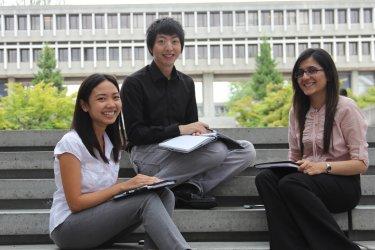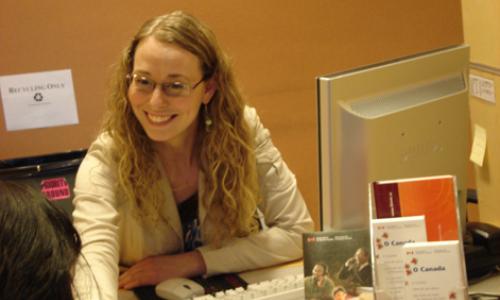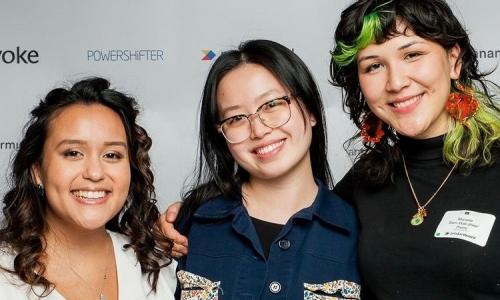
Making the transition from high school to university can be exciting but, at the same time, many of us will start to feel the pressure from learning to adapt to our new environment for the first time. For most of us, we do not know what we want to do when we first apply for post-secondary institutions, and the programs we apply for are usually heavily influenced by our parents or someone we know. Needless to say, the recommendations and choices they make may have every intention to benefit us, but it is inevitably up to us to figure out what we want to do for the rest of our lives.
There is a lot of information I wish someone had shared with me when I started at SFU, so now I would like to share a few tips to help you get the most out of your studies here.
In General
Utilize your school staff. Most schools have numerous support personnel at your disposal, be it an academic, financial or exchange advisor, professors, teaching assistants and so on. Make sure you make good use of them, not only because you pay for them but also because they are there for a reason - to help or serve you one way or another. I once obtained donated textbooks by graduating students from a faculty staff, and saved a bit of money that term.
In addition, while you are still in school, your schedule would likely be most flexible, so make good use of your time. Be it exercising, socializing, reading or whatever may be beneficial for school-life balance. I would also encourage you to read more materials related to current events in the world related to your career or field of interest, such as subscribing to professional magazines, to improve your knowledge of the specific profession or industry.
On Studying
While you are making the transition into your post-secondary career, take some time to sort things out, such as familiarizing yourself with your new surroundings and your schoolmates as much as possible. Figure out what you want, and focus on what your true priorities are. While the newly found freedom may seem exciting, many of my friends regretted making mistakes such as taking classes that they were not interested in, getting into a relationship too soon , or working too many hours on the side.
Find your sweet spot where you can concentrate without distractions. I tried studying at the campus and community libraries, café and coffee shops, empty classrooms in West Mall, library meeting rooms and finally, I found my sweet spot is at a large lecture hall like C9001, where there is a class going, and I sit in the middle of back top rows. Finding this sweet spot is crucial, because it will help improving your time management and productivity, so explore your surroundings and do yourself a favour to save time wasted on daydreaming or distractions.
Also, set strict deadlines to yourself and outline the rewards or penalties if you meet or miss the deadlines. If you are not able to enforce them yourself, ask your close ones to do so. In addition to that, when you want to focus, make sure your surrounding environment is distraction-free as much as possible. For instance, turn off your phones, tablets, computers, and keep away from your friends for this focus period. If you want take a break, you might as well put your textbooks away and enjoy yourself to the fullest. Similarly, it is in your best interest to spend the amount of time necessary to do well in your studies while ensuring there is time allocated to other aspects of your life, such as spending time with family and friends.
I understand that we all have our excuses for slacking off, whether it is academically or something else. But one of my biggest regrets in my undergraduate studies is that I know I could be a scholarship student, but I chose to slack off early on. Just think about it, what harm would it do to you if you have better grades? Especially with the prospect of having the government to pay for most, if not all, of your tuition? Once you know what you want to do later on in your undergraduate studies, you can then turn your attention to higher priority things, such as job searching, volunteering or getting involved in student club activities. But as a freshman who doesn’t know what s/he wants to do yet, it just doesn't hurt to have better grades!
If you can have the luxury to participate in the Study Abroad Program, by all means, do it! The best time of my undergraduate studies happened when I was on exchange, the chance for you to meet other students your age from across the globe is truly inspiring, and some of the partner schools are highly prestigious schools that are difficult for locals to be admitted into but easier for exchange students. This is true if you are thinking internationally, having spent time in a foreign school will definitely benefit you if you are applying for jobs at multi-national companies.
Take a few classes that truly interest you early on as a freshman, on top of the required core courses. The only two classes I liked in my entire undergraduate studies were History 254: Chinese History before 1800 and Stats 101: Introduction to Statistics. Both courses were taken to fulfill my WQB requirements, and ended up being the only courses where I can confidently say that I still remember most of the materials taught even after a few years.
Check out more helpful tips and advice on activities you can participate in to get your career started early in Must-know Tips For A University Freshman - Part 2.















